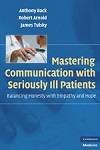Communication tips by Nursing on the Move.
 Are you a professional or a pre-professional?
Are you a professional or a pre-professional?
Do you use a second or foreign language at work?
Do you have a friend who speaks a foreign language at work or has a cultural background different from colleagues/customers?
During consultations, practitioners need to consider what language to use when asking questions. While the type of question affects the type and amount of information the patient will provide when replying, formulating your question in the right way will avoid confusion.
When asking a question during a consultation, you have to use appropriate language that does not make a patient feel uneasy. Avoid asking questions which contain suggestive language, or which may sound disapproving. The patient will feel more at ease when you ask questions using:
– descriptive language, which is used to describe the problem at hand clearly and unambiguously, and which leaves as little room for interpretation as possible.
– non-judgemental language, which generally means using words and terms in a neutral way rather than in a way that suggests an opinion or evaluation.
– You probably also suffer from …?
(inherent judgment and disapproval)
Say …
→ What you just mentioned may cause other problems … Are you experiencing any other problems?
(descriptive, non–judgmental question)
For more information, tips and examples, go here.
(Next month: Directive skills: Asking for clarification)
You can find an overview of all communication tips by Communication for Professionals here.
Mastering Adverse Outcomes
April to June 2016, London, Great Britain
Find more information here.
Mastering Communication with Seriously Ill Patients
By Anthony Back, Robert Arnold, James Tulsky
Physicians who care for patients with life-threatening illnesses face daunting communication challenges. Patients and family members can react to difficult news with sadness, distress, anger, or denial. This book defines the specific communication tasks involved in talking with patients with life-threatening illnesses and their families….shop the book.
Oncologists’ Reactions to Cancer Patients’ Verbal Cues
by P.N. Butow, R.F. Brown, S. Cogar, M.H.N. Tattersall and S.M. Dunn
Abstract
The diagnosis and treatment of cancer cause considerable psychological distress and morbidity. Consequently, cancer patients have high needs for informational and emotional support and doctors vary in their ability to recognise and address these needs. This study investigated patients’ attempts to gain informational and emotional support through the use of verbal cues…read more.
Tip: More up to date educational events dealing with communication for doctors and health professionals can be found online in the Education Database »medicine & health«.
